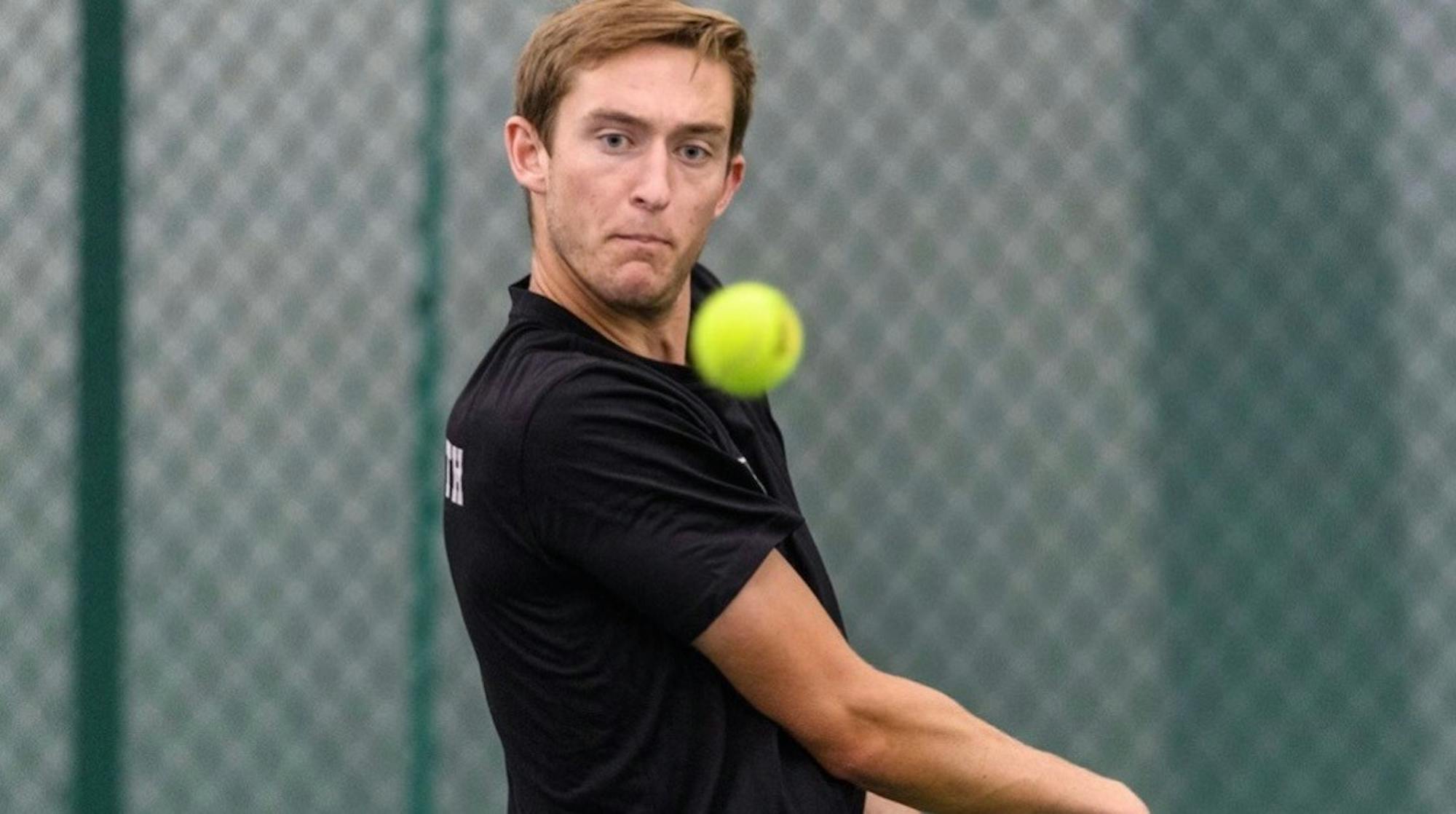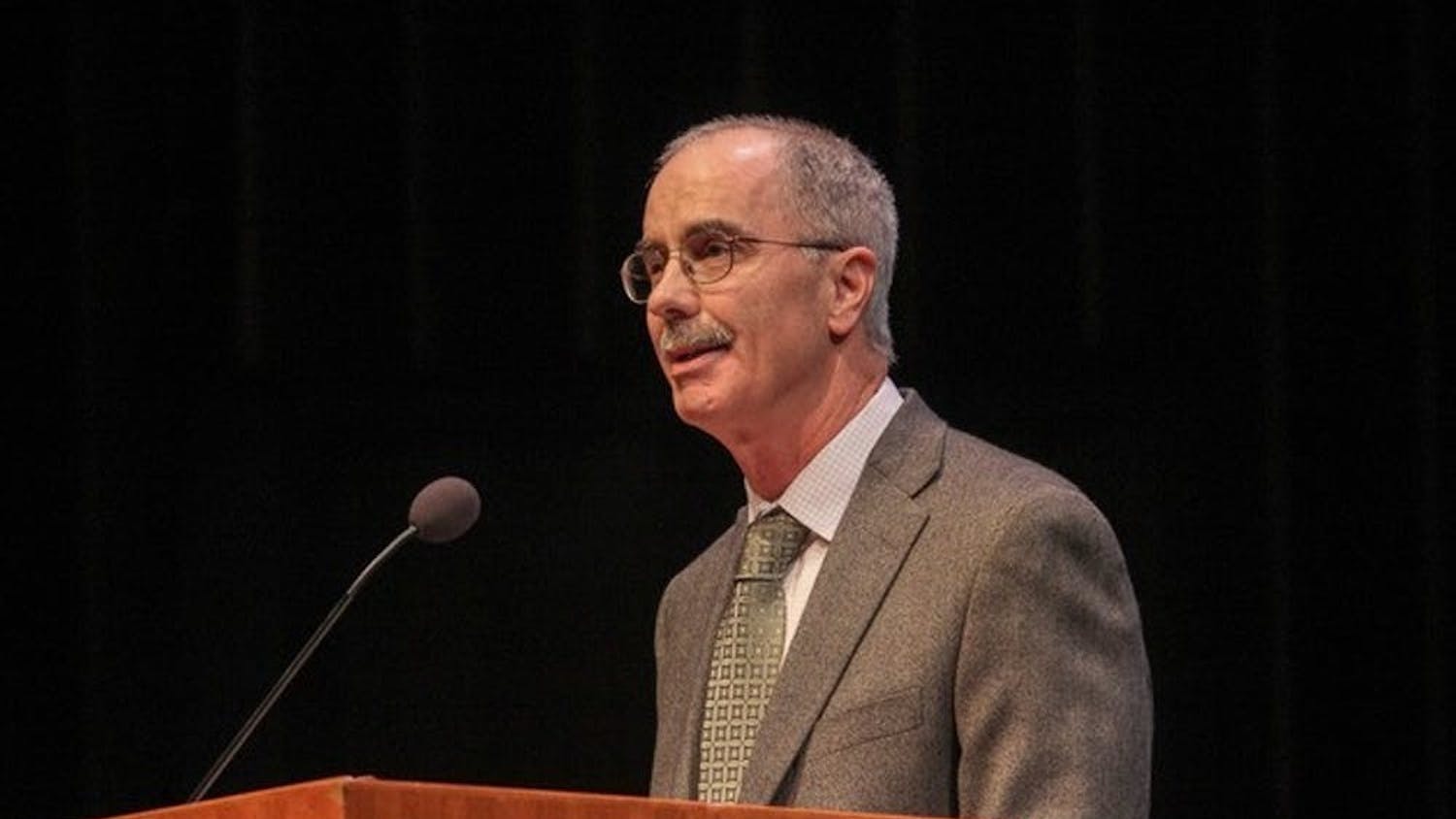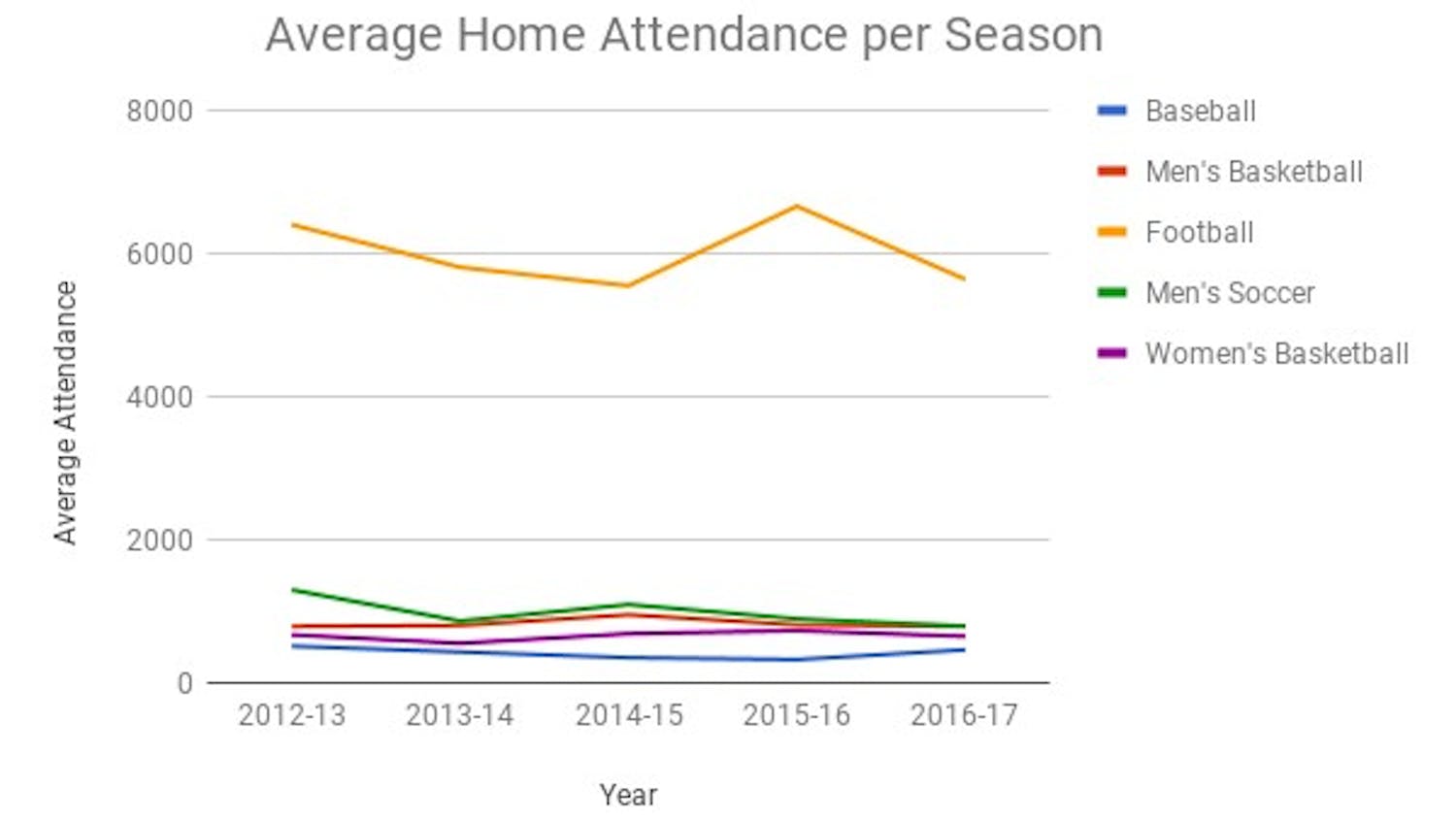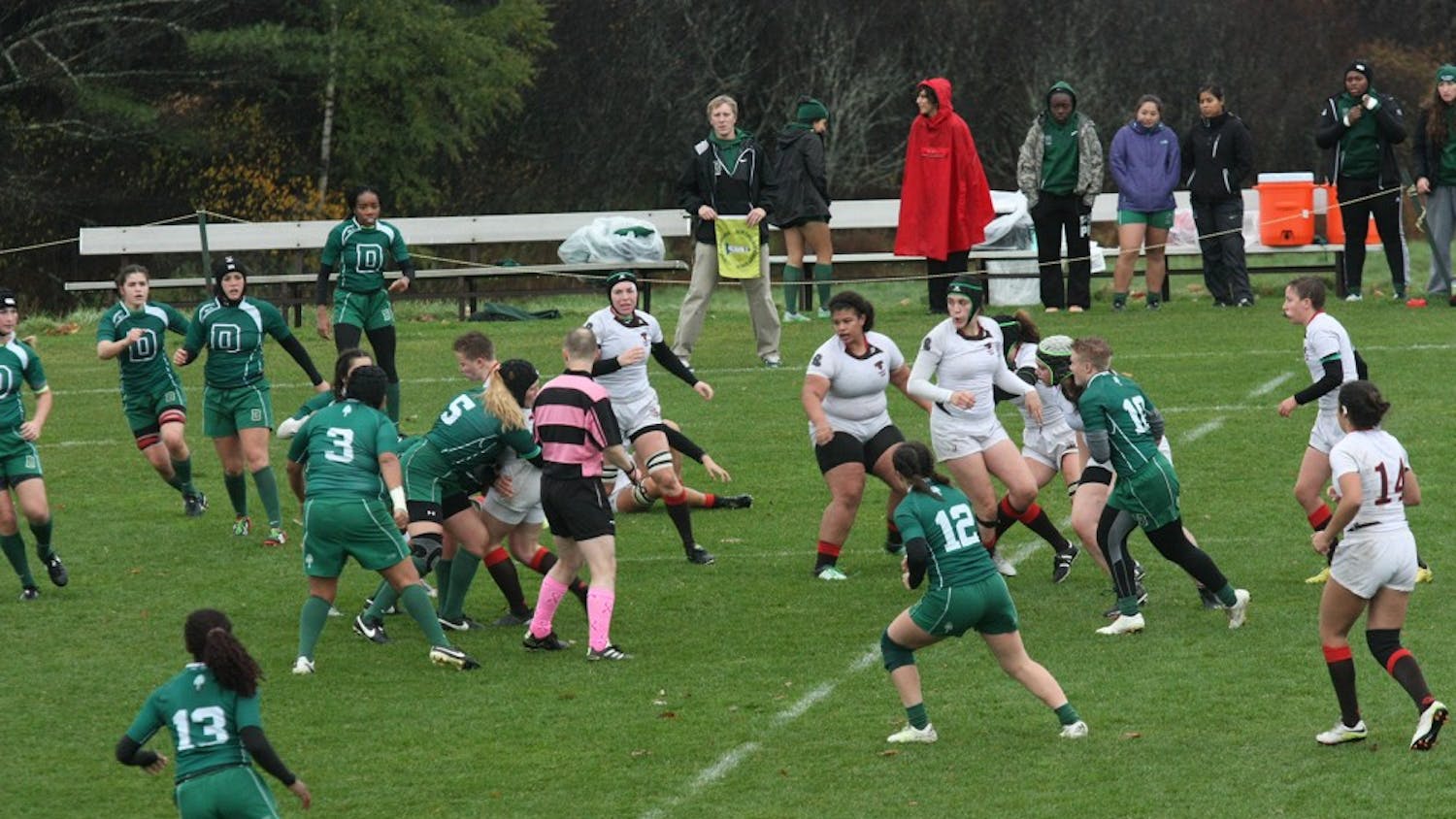The Dartmouth athletic department in March received a 40 out of 100 on the annual Athlete Equality Index score, a metric that evaluates LGBTQ+ inclusion policies and practices in NCAA Division I athletics. The score is compiled by Athlete Ally, a nonprofit organization which aims to end homophobia and transphobia in sports.
The AEI measures and ranks departments based on their nondiscrimination policy, trans inclusion policy, sexual harassment policy, fan code of conduct, collaboration with activist groups, LGBTQ+ educational resources and pro-LGBTQ+ training for staff and athletes. Athlete Ally takes all publicly accessible data found on each athletic department’s website into account when scoring a school.
While the AEI measures administrative policies that are made public by the athletic department, Athlete Ally does not survey student-athletes at the school to hear their experiences.
Olivia Goodwin ’21, a senior pole vaulter and long jumper who identifies as nonbinary and competes for the women’s track and field team, said that they have had a generally positive experience as a nonbinary student-athlete at Dartmouth.
“Since track is traditionally segregated into men and women, you kind of have to pick one,” Goodwin said. “For me, because I was assigned female at birth and I don’t take any hormone replacement therapy, I don’t have to worry about any of the NCAA eligibility rules regarding hormone changes. So for competitive reasons and because it makes my life more simple, I compete on the women’s team.”
Goodwin said that jumps coach Tim Wunderlich has done an effective job of emphasizing inclusion and making an effort to use correct pronouns.
“Coach has been awesome about it,” Goodwin said. “He still mis-pronouns me sometimes, but he’s really good at catching himself, and that’s really all I ask, is for that self awareness. I know that [my coach] respect[s] me and everyone messes up … it’s like, yeah, it’s gonna happen, but I don’t take it personally.”
Other student-athletes have echoed the belief that coaches work to establish an LGBTQ+ friendly environment. John Speicher ’21, a men’s tennis player who identifies as gay, recently published an article on Outsports — a sports website focusing on LGBTQ+ issues and athletes — encouraging other gay athletes to come out. He emphasized the importance of coaches in establishing an inclusive team environment.
“I think the big thing is coaches making sure that their language is very inclusive,” Speicher said. “The coach is the one constant thing that you have. The team is going to roll over every year with graduating seniors and incoming first-years, so making sure the coaches be considerate of what’s going on on the team is important.”
Speicher noted that tennis head coach Xander Centenari has also done well at creating an inclusive environment, including holding discussions with his players about team values on inclusivity and diversity. While Speicher noted that these conversations have never specifically been about gay acceptance, he emphasized that Centenari has established an environment inclusive of all identities. After publishing his article, Speicher said that Centenari sent him a text of support and then continued to treat him as he always had, which Speicher appreciated.
“If [the athletics department doesn’t] do something, it might be hard to know where the administration or the athletic department stands,” Speicher said. “[The athletics department has] been super supportive of me when I posted my article … but if you’re in the closet, you might not have that sort of support.”
Becca Wade ’22, a goalie on the women’s lacrosse team who identifies as bisexual, also felt that her coaches have been effective at establishing an inclusive environment. This past summer, Wade said that the team started having Zoom discussions about social justice issues. During one of the meetings, the coaches provided a platform for student-athletes identifying as people of color or as part of the LGBTQ+ community to share their experiences with teammates, according to Wade.
“It’s not like anyone has ever been negative on the team, but it is a different experience being on a mostly straight team,” Wade said. “After [we talked], a lot of teammates texted and were like ‘I didn’t realize this,’ or ‘I didn’t realize that you were experiencing these subtle things.’ … Continuing [those conversations] would be awesome.”
The Dartmouth Peak Performance team has worked with coaches to help them develop strategies to create an inclusive environment. Senior associate athletics director for DP2 Ian Connole explained the significance of this effort.
“By the things that [coaches] talk about in team meetings, by the questions they ask and by the people that they celebrate or tell stories of, we get this trickle-down effect of what’s accepted here,” Connole said. “Those things create a big piece of what happens within the sport culture, under the watch of the coach.”
According to Connole, Athlete Ally’s main issue with Dartmouth athletics was a lack of visibility of their policies on inclusivity. Currently, the department does not publish these policies on its website. Instead, the site features a statement that the “department embraces Dartmouth’s Principles of Community.”
Since Dartmouth’s poor result on the AEI, Connole said that he and DP2 have been working closely with Athlete Ally to increase the visibility of their own inclusivity policies. DP2 has developed a document that includes all of the athletic department’s policies aimed at fostering inclusivity, which will soon be published on the Dartmouth athletics site, according to Connole. As a result, Connole said he expects Athlete Ally to update the College’s score.
Goodwin said they think DP2 has improved its efforts this year to increase public support for LGBTQ+ players and issues. In its weekly newsletter to varsity student-athletes, DP2 has recently been including educational resources for all student-athletes regarding the LGBTQ+ athletic experience, such as a trans-inclusive webinar series.
Wade, however, said that she did not know about many of these initiatives and hopes that DP2 and the athletic department will make them more visible to the public.
“I had no idea they were working with Athlete Ally,” Wade said. “I get not making a big deal out of it, because sometimes singling out specific members because of their identity can potentially teeter in the wrong direction, but I think talking to teams and athletes about their input and using the student-athletes as resources would benefit everyone.”
Hoping to get student-athletes more involved, DP2 holds leadership workshops throughout the year, including a workshop on Inclusive Leadership. Connole added that the department’s long-term plan is to hold more educational events with the Race, Migration, and Sexuality Consortium of Studies for students next year.
“It’s basically bringing experts in to look at race, sexuality and their overlap with sport in society,” Connole said. “[Women’s, gender and sexuality studies] professor Eng-Beng Lim is one of our collaborators, and we’re coming together and we’re mixing things from the athletic culture, as well as the RMS consortium culture, to be able to put great resources and information out there for our student-athletes and staff.”
In order for these opportunities to be effective, Goodwin said that all student-athletes and coaches will need to take an interest in and actively participate.
“I do feel supported by my teammates, but I don’t really see many people on the team getting into advocacy or going to events and trying to learn more,” Goodwin said. “Like how teams are rewarded going to each others’ games, athletes could potentially be rewarded for going to events where they can learn about marginalized identities and what it means to be an ally.”




